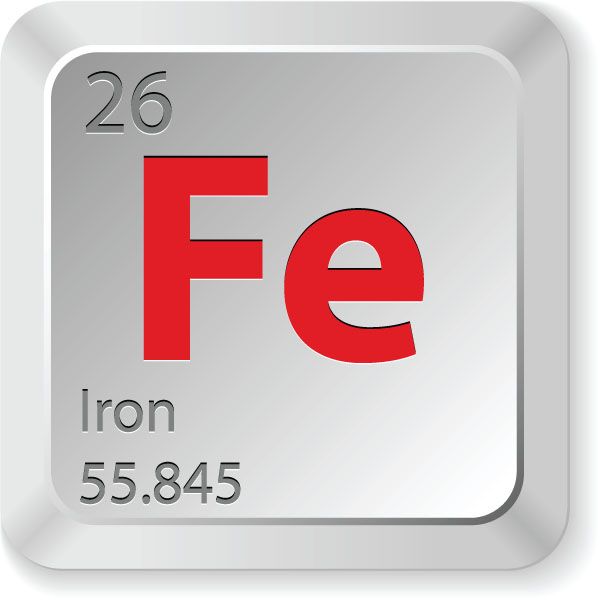So you're hitting it hard at the gym and have a good nutrition plan in place to keep you lean. You're good, right? Not always. Plenty of athletes take those two good things just a little Too far, and often end doing some long-term damage in the process. I'm not talking about an injury. I'm talking about your hormones!
Research has shown that high-volume training can cause a significant decrease in testosterone, a hormone you need to pack on the muscle, Testosterone is also critical to overall health and to help you feel as good as you look. If you don't believe that, just Google America’s fastest marathoner, Ryan Hall. Hall recently retired from running due to chronic fatigue and low testosterone levels brought on by his years of relentless training.
Even if you're not a marathoner, you're still at risk of the same condition that plagued Hall. But it's not a done deal! There's plenty you can do to keep your T levels up during serious training—and despite what the commercials imply, it doesn't have to involve getting testosterone from your doctor or taking a laundry list of supps.
Let’s explore some simple changes that can help you look and feel better!
What Is Testosterone?
Testosterone, a steroid hormone secreted predominantly in the testes, plays critical roles in your reproductive system, libido, and sexual function. It also plays a critical role in protein synthesis, which affects your performance, bone density, and ability to add muscle mass.
Just as having enough testosterone supports strength and sexual function, a lack of it (hypogonadism) can have equally dramatic side effects, including sexual dysfunction, infertility, stunted height, low bone-mineral density, reduced muscle mass, and reduced strength. It can also cause low energy, depression, and problems sleeping.
Testosterone Therapy: Probably Not The Best Solution
With all the concern about sex drive, erectile dysfunction, and fatigue, some men turn to testosterone therapy (also known as androgen-replacement therapy) to boost their T levels. The therapy can include the use of supplements, creams, gels, injections, patches, and pills.
Don't jump to the conclusion that all your problems can be solved with testosterone therapy. Taking any supplement or product to give you more of what your body already produces naturally (like testosterone) can affect your body's ability to produce it on its own. The use of testosterone products can also reduce sperm production, which can affect your fertility—not something to you want to mess around with.
Testosterone therapy may not treat all of the symptoms of low T levels anyway. A 2001 study showed that large doses of testosterone worked great for increasing muscle mass but had no effect on sexual activity or desire.
And then there is the issue of drug testing. Even though hypogonadism is a recognized condition, the World Anti-Doping Agency (WADA) allows the use of testosterone supplements only if the condition is caused by a genetic abnormality, testicular trauma, or is the result of radiation and/or chemotherapy. If you're thinking about competing, think twice about T supplementation.
Cure For Low Testosterone: Try Eating More
More research needs to be done, but it's possible that for some men, the problem of low testosterone can be solved simply by eating more and monitoring physical-activity levels.
Along similar lines, research from my laboratory looked for a possible cause of low testosterone among highly active men. We found that men who were exhibiting the hypogonadal condition and running more than 40 miles per week were consuming no more calories per day than sedentary men, even though they were burning an estimated 1,000 calories per day from running alone. For these active men, upping their daily caloric intake would be a good first step in addressing their low-T symptoms.
So make sure your diet supports your physical-activity levels. To get started, calculate how many carbohydrates, protein, and fats you need each day, track your workouts, and keep a food diary.
By the way, if you've heard that you need high amounts of dietary cholesterol to create testosterone, research on ultra-runners following a high-fat diet found that the athletes still had problems with low testosterone. The issue seems to be with total calories, not just fat intake.
Taking The Next Step: Talk With Your Doctor!
If you think you have low testosterone, try taking in more calories and monitoring your physical-activity levels. If that doesn't work, talk to your doctor. Enclomiphene citrate, available by prescription only, has been shown to raise testosterone levels without reducing sperm count or fertility in some individuals. It's also considered a safer form of treatment than testosterone therapy, which has been linked to serious side effects, including heart attacks and blood clots.
The main thing to keep in mind if you think you have low levels of testosterone is to go slow and try the simplest, least-invasive approaches first. When the remedy might be as simple as eating more or working out less, don't be tempted by a quick fix of artificial T: You have too much as stake.
Source: Too




